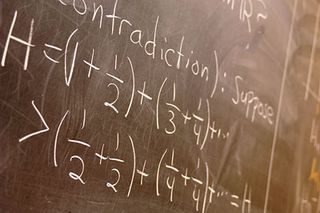We all spend a great deal of time
trying to figure out the best possible ways to predict potential success in
those we recruit and interview.
And we aren't alone.
 Where there exists a big
Where there exists a big
question, you can usually find big research. Many people within the field of psychology
spend ample time and research dollars trying to predict the same.
While
reading Martin Seligman's most recent book, called "Flourish," I
am, once again, struck by how far research has come in boiling down
"achievement" to its primary components.
The following is an excerpt
of an article summarizing the research on this topic.
"Many people think that if you are
smart and have enough talent, you will succeed in fields such as sports, music,
education and business. When we think of great people in history such as
Mozart, Edison, Confucius, and Shakespeare we hear about their talent and
intelligence.But true genius is being shown to be as
much a product of grit as intelligence or skill.A study of genius (By
Dr Angela L. Duckworth and Christopher Peterson) in twenty-one fields,
including astronomy, music, mathematics, Eastern and Western philosophy,
painting and literature showed that only two or three giants stand way ahead in
each of these fields, a few top performers outdistance the rest by a huge
amount.For example, in the publication of scientific papers, very few
people publish many papers, but the majority of scientists publish none or only
one. In golf, only three golfers have won sixty or more PGA tournaments
(Arnold Palmer, Jack Nicklaus and Tiger Woods). Greatness and high achievement are
reserved for only a few. It is their grittiness, as well as their intelligence
and skill that caused their success.The equation that predicts success is: (Skill) x (Effort) = Achievement.
Martin Seligman, a well known academic
and psychologist, in his recent book “Flourish,”
points to a a great deal of research that shows achievement can be understood
and predicted by the following four factors.SPEED: Seligman calls this ‘Fast’ and it is the sheer speed of your
thought about a task. This involves how much and how quickly you have
access to relevant knowledge on the task. It is hard to develop this. You
either have it or you don’t.MINDFULNESS: He calls this ‘Slow’. This is the ability to call up
memories, plan, check, review and be creative in examining and exploring the
task. This can be learned through meditation and mindfulness practices
such as walking, eating with attention, and breath awareness.RATE OF LEARNING: The faster your rate of learning, the more knowledge
you can accumulate about the area. This is different from sheer speed of
thought. This occurs by being involved in new, challenging, and tight
time-lined projects and through reviewing “lessons learned.”EFFORT: Time on task. This is the time spent on doing or
practicing the task and multiplies the skill available in achieving the
goal. It also adds to speed since more time spent on a task results in
more knowledge of it.Research has shown that extraordinary
achievement in sports, chess, music, writing and business is not just talent or
IQ but the amount of hours you practice something. If you want to be
great at something practice it for 60 hours a week for 20 years!"
When reading the literature, I am
left with questions I believe we all need to be asking if we expect to continue
learning, growing, and getting better at what we do:
1. Can you find both sides of this
equation being lived out in those you know who have succeeded?
2. Does it clearly differentiate workers
who succeed from those who don't?
3. Did the successful individuals come with one or both characteristics,
or did they develop them?
4. Do people lose either side of the
equation with time? If so ,how and why?
5. Can you teach this equation in a
way where it will inspire people to develop a growth mindset and better pursue
both sides of the equation?
6. Are there components of the equation
that are missing? (i.e. interests, signature strengths or innate wiring etc.)
Let me know your answers or other
questions that I might be missing.
Join the WorkPuzzle Discussion at the Tidemark Online Community (TMOC)
Engage in the WorkPuzzle discussion by joining the TMOC private social network. Commenting on a public blog like WorkPuzzle can be a little intimidating, so why not join the discussion inside the privacy of the TMOC discussion group?
By joining TMOC, you'll get to see who else is in the group and your comments will only be seen by those whom you trust. Joining TMOC is quick, easy, and free (no kidding…this takes less than 2 minutes). To get started, click here.
Already of a member of TMOC? If so, join the WorkPuzzle Dialog Group by clicking on the WorkPuzzle Group icon on the left side of your TMOC homepage. Questions? Email the WorkPuzzle editor (workpuzzle@hiringcenter.net) and we'll walk through the process.
 Editor's Note: This article was written by Dr. David Mashburn. Dave is a Clinical and Consulting Psychologist, a Partner at Tidemark, Inc. and a regular contributor to WorkPuzzle.
Editor's Note: This article was written by Dr. David Mashburn. Dave is a Clinical and Consulting Psychologist, a Partner at Tidemark, Inc. and a regular contributor to WorkPuzzle.

